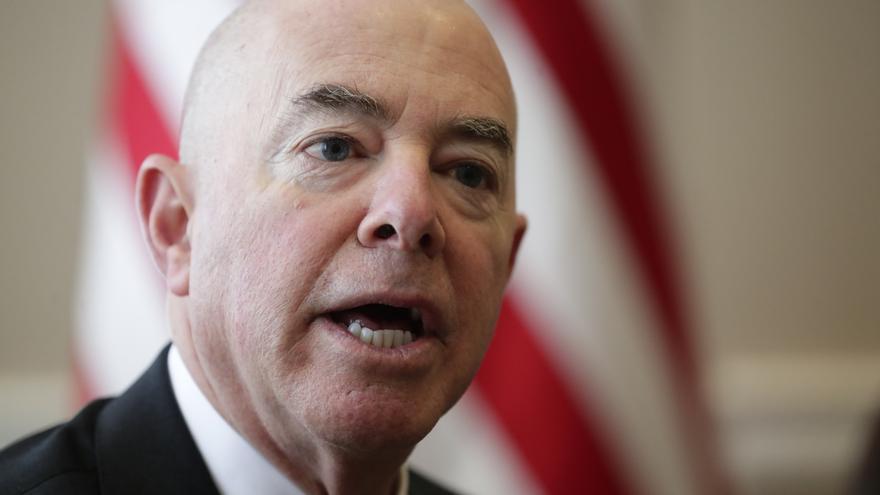So far this year, 104,000 adults have crossed, of which 35% are women

![]() Moncho Torres/EFE, Bajo Chiquito (Panama), 4 May 2024 — Migration has long ceased to be something only for men. Women alone, with children or with their partners, leave their homes behind and cross through the “hell” of the Darién jungle, where they are victims of rape and robbery even while carrying their children. “¡Let’s go, we’re almost there!”
Moncho Torres/EFE, Bajo Chiquito (Panama), 4 May 2024 — Migration has long ceased to be something only for men. Women alone, with children or with their partners, leave their homes behind and cross through the “hell” of the Darién jungle, where they are victims of rape and robbery even while carrying their children. “¡Let’s go, we’re almost there!”
At the checkpoint of Bajo Chiquito, the first indigenous town that migrants come to after crossing the Darién, which is the jungle border between Panama and Colombia, the Panamanian authorities collect data from the hundreds of newcomers who, exhausted, are waiting patiently to take their turn. Behind the officials, apart, sits a girl. Suddenly, it seems that she has identified someone in the line.
“Do you know this girl?” the officer asks a woman. “Is she 12 years old?” she replies. They ask the girl and she nods. The officer then asks her if she knows where her mother is. “Yes, she’s coming further back.”
Venezuelan Karely Salazar, 31, travels with her 7-, 10- and 12-year-old daughters. They have gone to the village outpatient clinic. “The smallest one has a fever and a cold from spending two days in the river,” the woman explains to EFE, exhausted. “Their father is in Venezuela,” she adds. continue reading
“The smallest one has a fever and a cold from spending two days in the river”
“Thank God we crossed the jungle, but it really wasn’t easy, very difficult for the children,” she says. “Did your eldest daughter get lost?” “Yes,” the mother nods, and her face changes. She says that on the second day of walking her leg hurt and she couldn’t move, and the little girl walked into the crowd and “lost her way.”
“Last night I cried and cried because I didn’t know where she was,” says the mother. Hundreds of migrants, or thousands, pass through that jungle every day.
According to data from the Panamanian authorities, after the historic record of more than 520,000 migrants who crossed the Darién in 2023, so far this year more than 130,000 have crossed. Of the 104,000 adults, about 35% are women, and of the more than 28,600 minors, 47% are girls.
The Panamanian authorities generally issue strong warnings against migration, since the Colombian side is controlled by the Gulf Clan, a criminal organization that in 2023 received 68 million dollars for the passage of migrants, in addition to other gangs that steal from and attack those who pass by.
The director of Migration of Panama, Samira Gozaine, goes further: “There are stories that some mothers leave their children to drown in the river because they are too heavy to carry; they abandon them to their fate,” she told EFE a year ago.
“It’s a total hell,” says the young woman, but the crisis in Venezuela gave her no other option; working 12 hours a day in a supermarket gave her only 20 dollars a week
For the international lawyer and human rights activist Iván Chanis, these stories”dehumanize” the migrants and deny the reality, because, as he explains to EFE, “what mother wants to leave her daughter behind?”
Luisannys Mundaraín, 22 years old, carries her baby in her arms and breastfeeds him. She tells EFE that when she crossed one of the rough parts with the baby he slipped, but she was able to hold onto him at the last moment. To this were added the snakes, spiders, rivers, and “those thieves who rob and rape women.”
Mundaraín then recounts how her group was intercepted on a hill by a group of armed men wearing hoods, who asked them for “100 dollars for each person. Those who did not give them money had to hand over their phones, or if it was a woman she had to stay for you know what.”
Doctors Without Borders (MSF) reported, before the Panamanian authorities banned them from continuing to provide medical care in the country, that they treated more than 1,300 people for sexual violence in the Darién between April 2021 and January 2024.
“It’s a total hell,” says the young woman, but the crisis in Venezuela gave her no other option, with 12-hours of work in a supermarket for 20 dollars a week, when “a package of diapers cost 5 dollars and food was even more expensive.”
Thus, when in the middle of the electoral campaign some Panamanian politicians say that they are going to close the 165 miles of border in the Darién, the young woman sighs. “It’s impossible to close it, because even if there are thousands of dangers, migrants will always try to cross because of the poverty they suffer in their countries.”
Translated by Regina Anavy
____________
COLLABORATE WITH OUR WORK: The 14ymedio team is committed to practicing serious journalism that reflects Cuba’s reality in all its depth. Thank you for joining us on this long journey. We invite you to continue supporting us by becoming a member of 14ymedio now. Together we can continue transforming journalism in Cuba.

